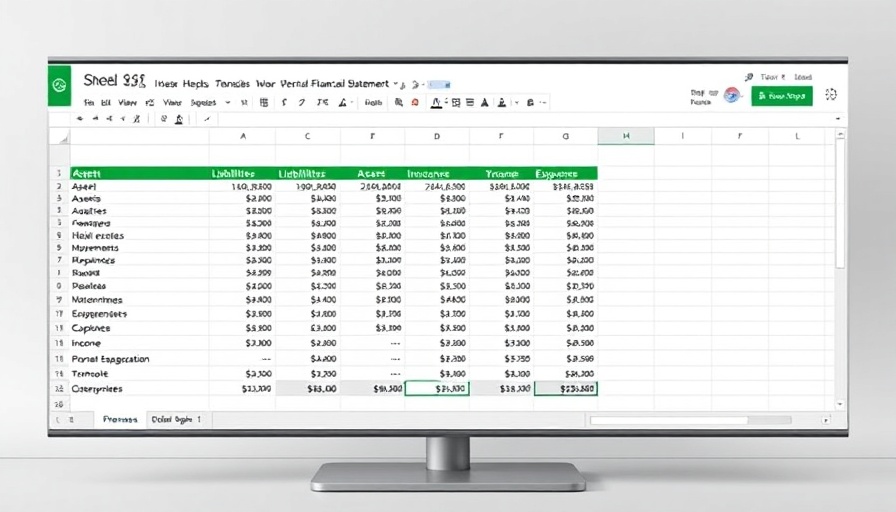
Understanding the Importance of a One-Page Financial Statement
In today's fast-paced financial landscape, clear visibility into one’s financial situation is vital for informed decision-making. In this context, creating a one-page financial statement can act as a powerful tool for personal finance management. This single-sheet overview can encapsulate critical financial metrics such as your income statement, balance sheet, and financial goals, placing everything you need to know at your fingertips.
Crafting Your Personalized Financial Dashboard
The essence of a personal financial statement lies in its ability to summarize your financial health succinctly. By integrating features like income tracking, account logins, automated payments, and overarching financial goals into a single dashboard, you create a resource that not only serves your current needs but also acts as a guiding tool in times of uncertainty. According to Retool, dashboards provide an individualized view, allowing users to monitor spending habits and savings efforts effectively, setting them on a stable path toward their financial aspirations.
Why You Need a Financial Statement Template
A well-structured financial statement template allows you to organize your finances even when your situation feels overwhelming. It builds a foundational understanding of your current financial circumstances, catalyzing positive changes. This template is particularly beneficial for those starting their financial journey or looking to rectify previous misalignments. In essence, it’s not just a tool; it’s a starting point for anyone looking to regain control over their financial destiny.
Embracing Change: Keep Your Financial Dashboard Updated
One of the critical advantages of maintaining a personal financial statement is its adaptability. Life's unpredictability necessitates regular revisions to reflect changes in income, expenses, or financial goals. Whether utilizing Google Sheets or Excel, the freedom to regularly update your financial dashboard ensures that you are always aligned with your financial reality, effectively preparing you to adapt your financial strategies as needed.
Real-World Applications of Your Financial Dashboard
Many users of personal finance dashboards have shared transformative experiences, citing increased clarity in their spending and saving practices. By implementing strategies such as zero-based budgeting or creating distinct financial goal categories, individuals report heightened confidence and control over their finances. Whether you’re aiming to build an emergency fund, save for a vacation, or pay down debt, a structured approach will streamline these processes, leading to visible outcomes.
Moving Beyond the Basics: Diversifying Financial Tools
The evolution of personal finance management has birthed a range of tools, from budgeting applications to complex investment tracking spreadsheets. While the one-page financial statement is impactful, complementing it with tools like Retool’s customizable finance dashboard can offer deeper analytics and insights, reaching beyond surface-level understanding to uncover trends and patterns in your financial behavior.
Conclusion: Take Control of Your Financial Future
Developing a personal financial statement is a powerful step towards achieving financial stability and success. This dashboard-like approach not only visually consolidates your finances but also empowers you to make informed decisions. So, if you haven’t created yours yet, now is the perfect time to start. Download the free personal financial statement template, fill it in with your information, and store it safely. By consistently engaging with this template, you're not just keeping track; you're paving the way for enhanced financial literacy and autonomy.
 Add Row
Add Row  Add
Add 



Write A Comment